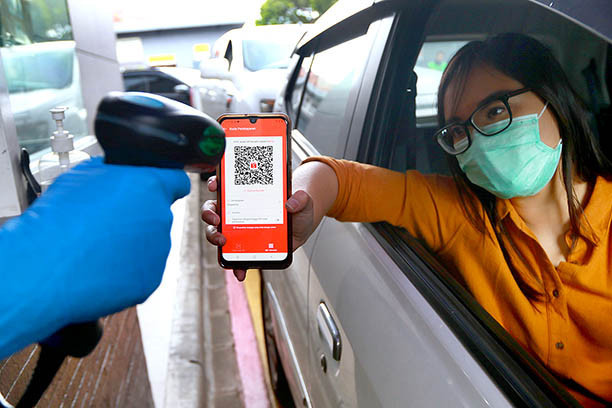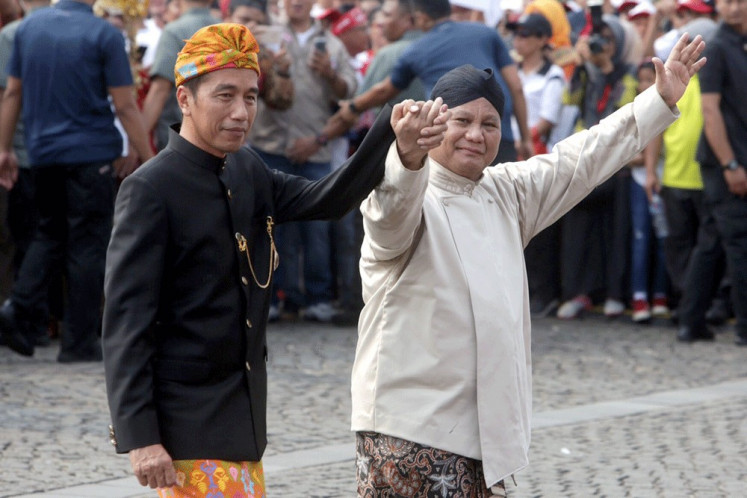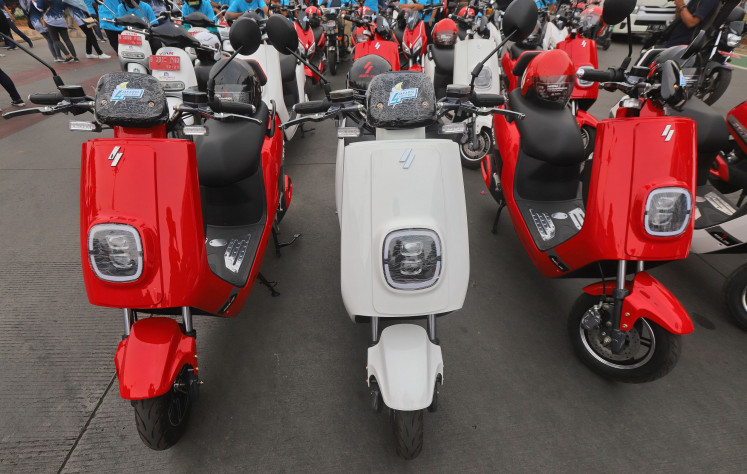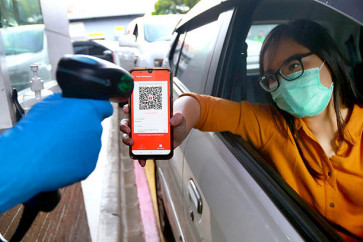Analysis: Shopee, Google investigated for monopoly allegations
Change text size
Gift Premium Articles
to Anyone
 Phone wallet: An employee serves a buyer paying with the ShopeePay online payment app at a McDonald’s drive-through in Salemba, Jakarta, on Tuesday. (JP/Dhoni Setiawan)
Phone wallet: An employee serves a buyer paying with the ShopeePay online payment app at a McDonald’s drive-through in Salemba, Jakarta, on Tuesday. (JP/Dhoni Setiawan)
I
ndonesia’s antitrust agency, the Business Competition Supervisory Commission (KPPU), has accused e-commerce firm Shopee and tech giant Google of engaging in monopoly practices. Shopee, accused of monopolizing its courier services, has since closed its case by agreeing to make changes to its services. On the other hand, Google, accused of monopoly through its Google Play Billing (GPB) System, has only just entered its phase of court hearings.
Shopee’s case began after investigators at the agency detected discriminatory actions by the e-commerce firm in selecting courier companies in its digital platform. The platform had reportedly been set up to automatically activate and prioritize PT Nusantara Express Kilat (SPX) for package deliveries to consumers, leading the KPPU to view such actions as a violation of anticompetition rules.
According to KPPU investigator Maduseno, Shopee previously offered consumers a variety of courier service options with different shipping costs. However, after implementing an algorithm change and standardizing its delivery services on March 15, 2021, the option to select couriers and shipping costs was removed. Subsequently, this move resulted in consumer loss and the introduction of a single price that also eliminated price promotions. Additionally, it was discovered that Shopee executive director Handika Wiguna Jahja simultaneously serves as SPX’s director - a piece of evidence the KPPU believes points to Shopee’s alleged monopoly practices, as such a dual role could “influence the affiliated business entities and potentially affect business competition”. With the e-commerce company’s actions causing the KPPU to suspect it of violating Article 19D and Article 25 Paragraph 1A of Law No. 5/1999 on the prohibition of monopolistic practices and unfair business competition, the case went through several hearings and concluded with the KPPU accepting Shopee’s proposal to change its user interface.
Following this, on July 2, Shopee signed an integrity pact with the KPPU to ensure that this commitment to behavioral changes in its alleged monopolistic practices is upheld. Monitored by the agency, the pact includes commitments to refrain from engaging in anticompetitive behavior, cease dominant market position activities and willingly provide evidence demonstrating behavioral changes to the monitoring team.
Meanwhile, Google’s case began in late 2022, with the KPPU alleging that the tech giant engaged in monopoly practices by requiring companies distributing their applications through the Google Play Store to use GPB, a method for purchasing digital products and services within applications distributed through the store. According to reports, Google allegedly threatened to remove applications from the Google Play Store if the respective companies did not comply with using the GPB, further burdening app developers as the tech giant also imposed a service fee of 15 to 30 percent of the price of the digital content sold. Prior to Google mandating the use of GPB, app developers could use other payment methods with fees below 5 percent.
Consequently, the KPPU assessed that due to this policy, and with the Google Play Store being the largest application distribution platform in Indonesia, the tech giant has created market barriers for payment service providers, reduced payment options for consumers and caused a decrease in revenue for Indonesian developers while increasing revenue for itself.
Google’s actions have led to allegations of violating Law No. 5/1999, similar to Shopee. Its first court hearing with the KPPU was recently held on June 28 and the second is scheduled on July 16.


















